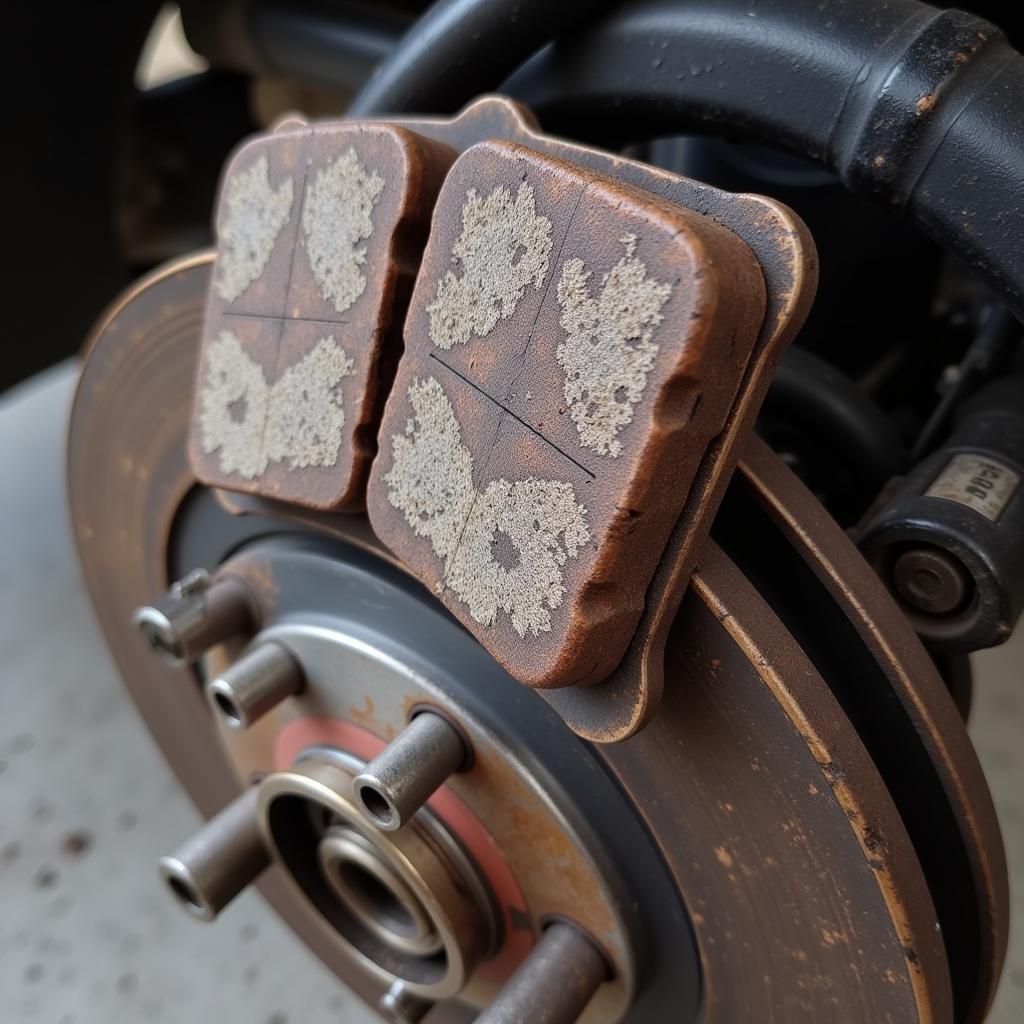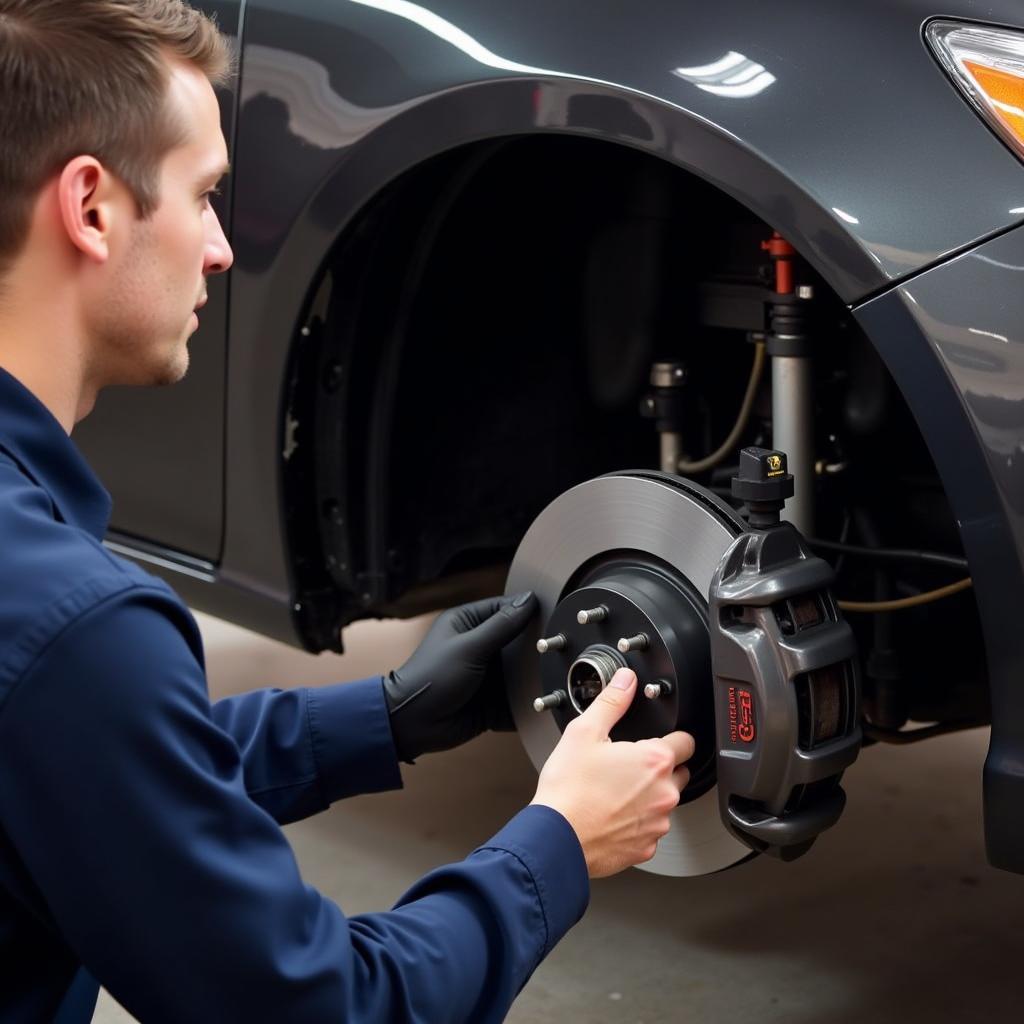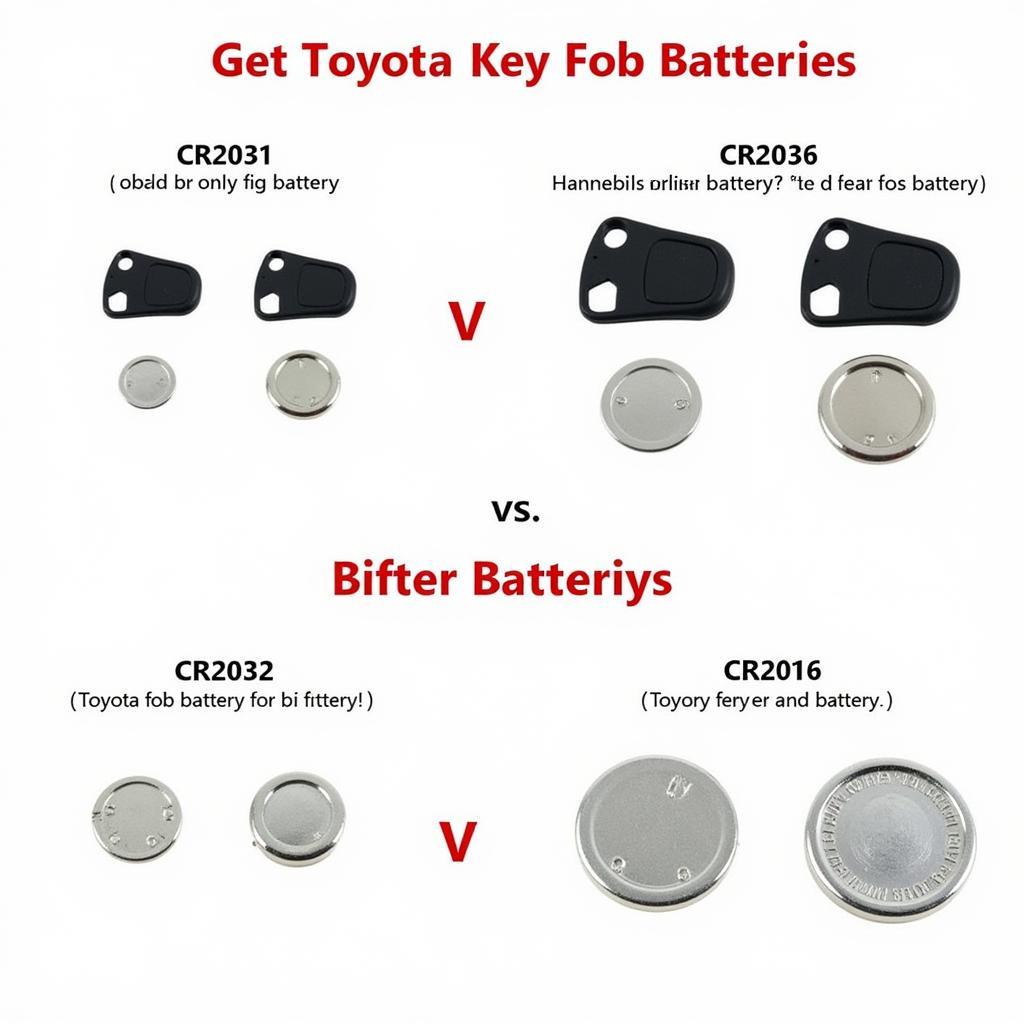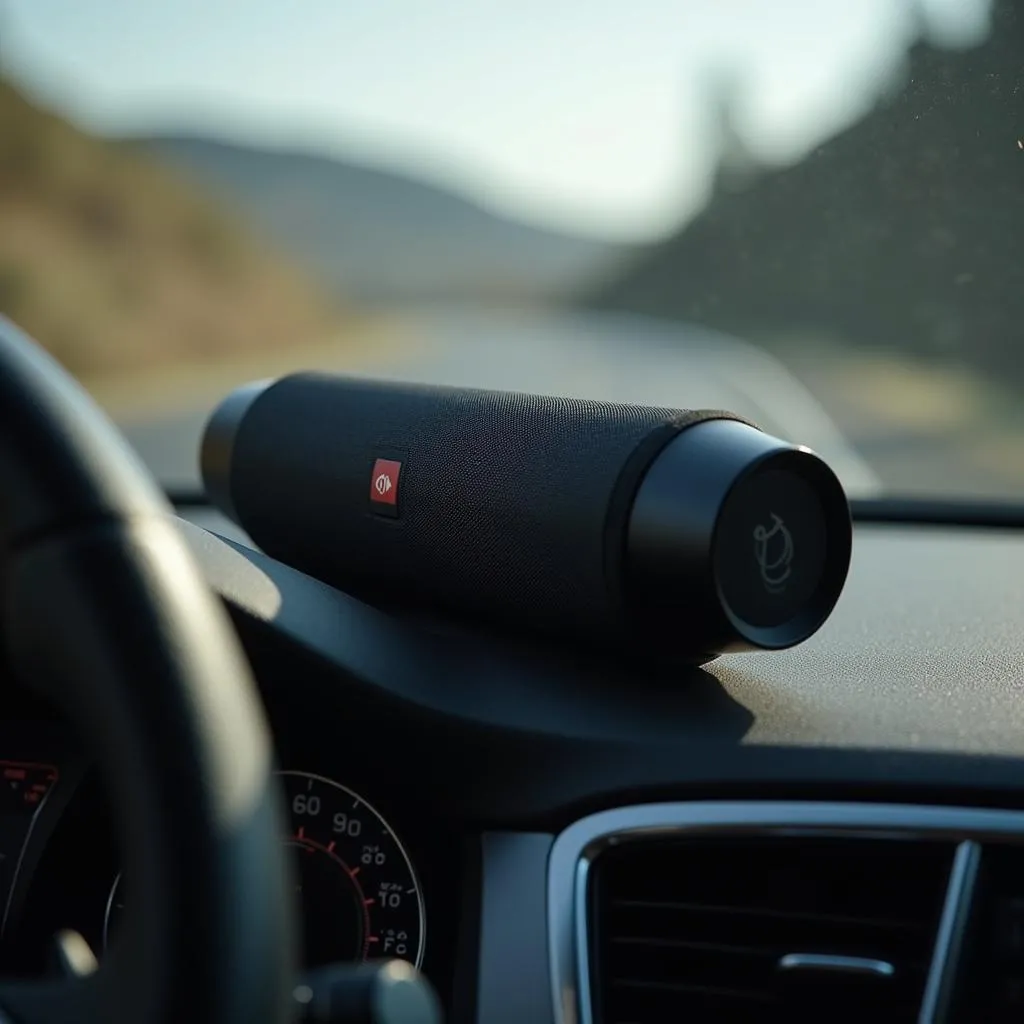Seeing a brake light warning on the dash of your 06 Honda Accord can be unnerving. This warning light, often accompanied by other warning lights or symptoms, indicates a potential issue with your braking system. Identifying the root cause is crucial to ensuring your safety and addressing the problem effectively. This article delves into common causes of a brake light warning on a 2006 Honda Accord dashboard and provides insightful solutions to get you back on the road safely.
Common Causes of a Brake Light Warning on a 2006 Honda Accord
Several culprits could be triggering the brake light warning on your 2006 Honda Accord’s dashboard. Let’s explore some of the most common ones:
-
Worn Brake Pads: Brake pads are designed to wear down over time. When they become too thin, a sensor embedded within the pad triggers the brake light warning on your dash.
-
Brake Fluid Leak: Your Honda Accord relies on hydraulic pressure from brake fluid to engage the brakes. A leak anywhere in the system can lead to a drop in pressure, activating the warning light.
-
Faulty Brake Light Switch: The brake light switch, positioned behind the brake pedal, signals the brake lights to illuminate when you press the pedal. A malfunctioning switch can disrupt this process, causing the warning light to come on.
-
Blown Fuse: A blown fuse in the brake light circuit can disrupt the flow of electricity, leading to a malfunctioning brake light system and a lit warning light.
-
Defective ABS Sensor: If your 2006 Honda Accord is equipped with an Anti-lock Braking System (ABS), a faulty ABS sensor can trigger the brake light warning. This sensor plays a vital role in preventing wheel lockup during braking.
 Brake Pad Wear Sensor
Brake Pad Wear Sensor
Troubleshooting the Brake Light Warning
Before rushing to a mechanic, there are a few troubleshooting steps you can take to potentially pinpoint the issue:
-
Check Your Brake Fluid Level: Locate the brake fluid reservoir under the hood. Ensure the fluid level is between the minimum and maximum marks. If it’s low, there might be a leak.
-
Inspect Your Brake Lights: Have a friend press the brake pedal while you check if all brake lights (left, right, and center) are functioning correctly. If not, a blown fuse or a faulty brake light switch could be the culprit.
-
Listen for Unusual Noises: Pay attention to any unusual noises, such as grinding or squealing, when applying the brakes. These sounds can indicate worn brake pads.
When to Seek Professional Help
If your troubleshooting efforts don’t resolve the issue or you suspect a more complex problem, it’s crucial to seek professional help from a qualified mechanic specializing in Honda vehicles. They have the expertise, tools, and diagnostic equipment to accurately diagnose and repair the issue. Attempting to fix complex brake problems yourself can be dangerous and lead to further damage.
Preventive Maintenance for a Healthy Braking System
Regular maintenance is key to preventing brake problems and ensuring the longevity of your car’s braking system. Here are some preventive measures:
-
Regular Brake Inspections: Schedule brake inspections at least once a year or as recommended in your Honda Accord’s owner’s manual.
-
Timely Brake Pad Replacement: Replace your brake pads before they wear down completely. Consult your owner’s manual or a mechanic for the recommended replacement interval.
-
Brake Fluid Flush: Honda recommends flushing your brake fluid every 30,000 miles or as part of your regular maintenance schedule.
-
Address Warning Signs Promptly: Never ignore warning signs like a brake light warning on your dash. Addressing them promptly can prevent more severe problems down the line.
 Mechanic Inspecting Brake System
Mechanic Inspecting Brake System
Conclusion
Addressing a brake light warning on your 2006 Honda Accord’s dashboard is crucial for your safety and the vehicle’s well-being. By understanding the common causes, performing basic troubleshooting, and seeking professional help when needed, you can ensure your Honda Accord’s braking system remains in optimal condition. Remember, regular maintenance and prompt attention to warning signs are key to safe and worry-free driving.
Don’t let a brake light warning linger; take action today to ensure your peace of mind on the road.


